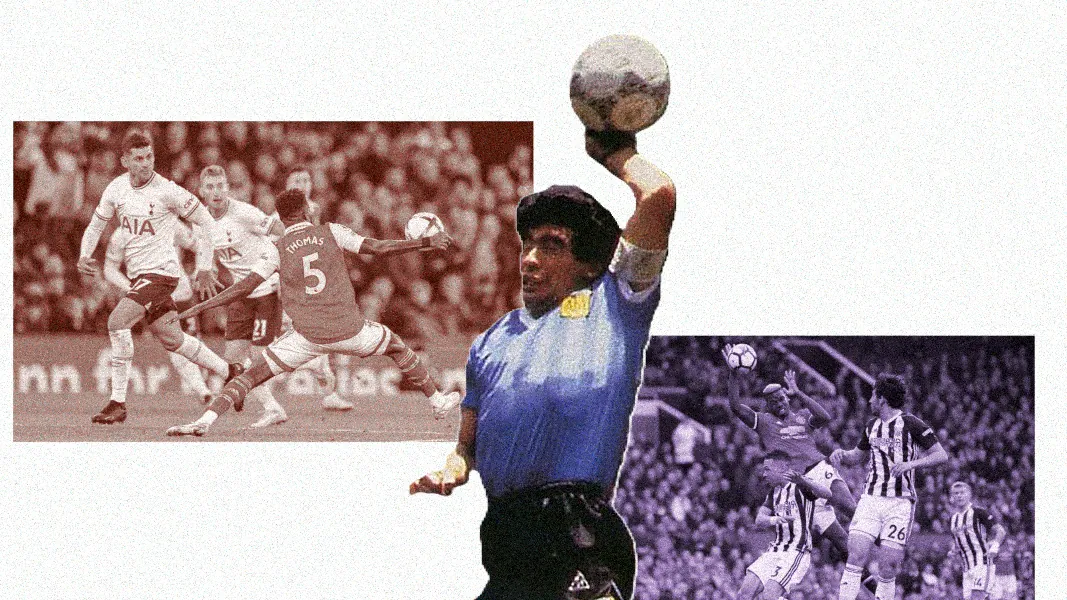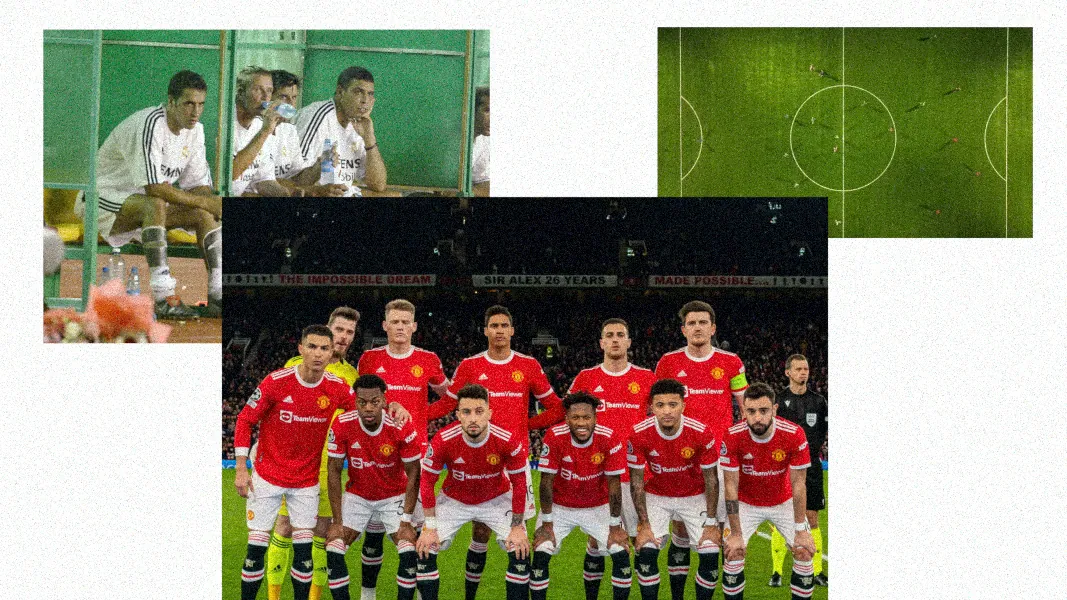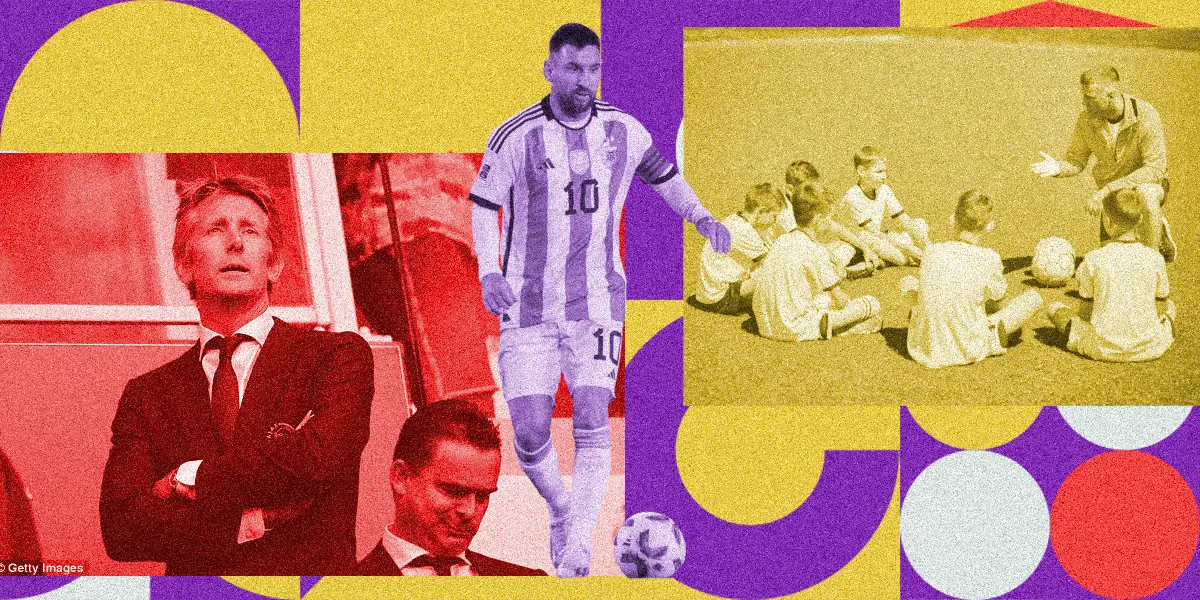Soccer in England is more than just a game; it’s embedded in the cultural fabric of the country. Two tournaments have acted as the shining beacons of this culture for decades – the FA Cup and the EFL Cup.
But what are the differences between the two competitions? Which one is given more importance in the soccer world? We’ll find the answers to these questions and more in this article.
In this comparison article between the FA Cup and EFL Cup, we’ll delve into the essence of these tournaments – what they mean, how they’re played, and why they matter. We’ll explore their histories, formats, legacies, and more.
So, whether you’re a die-hard fan or just starting to explore English soccer, this journey through the FA Cup and EFL Cup promises to be an insightful one.
Key Takeaways:
- The FA Cup and EFL Cup are two distinct but cherished competitions in English soccer.
- The FA Cup boasts a rich history, inclusivity, and prestige, while the EFL Cup offers a focused path to domestic silverware.
- The future of both tournaments continues to evolve to meet the demands of modern soccer.
The Difference Between the Football Association (FA) and the English Football League (EFL)
Before we dive into the differences between the two cups, let’s first take a quick look at the organizations that arrange these tournaments.
The Football Association (FA)
Purpose and Scope
- Governing Body of English Soccer: The FA is the governing body for soccer in England. It is responsible for overseeing all aspects of the game, including rules, competitions, and development.
- Responsible for National Teams: The FA manages the England national teams (men’s, women’s, youth) and is responsible for their selection and participation in international competitions.
- Regulatory Role: It sets the rules and regulations governing soccer at all levels in England.
Key Functions
- Rule-Making and Enforcement: The FA establishes and enforces the laws of the game, which apply to all soccer played within England.
- Competition Management: It organizes and oversees prestigious competitions like the FA Cup, FA Women’s Super League, and FA Youth Cup.
- Development and Education: The FA invests in grassroots development, coaching programs, and referee training to nurture talent and ensure high standards.
- Discipline and Ethics: It handles disciplinary matters, including fines and suspensions for players, coaches, and officials who breach regulations.
The English Football League (EFL)
Purpose and Scope
- Organization of Professional Soccer Leagues: The EFL is responsible for organizing and administering professional soccer leagues within England. This includes the Championship, League One, and League Two.
- Promotion and Relegation: It manages the system of promotion and relegation between these leagues.
Key Functions
- League Management: The EFL oversees the operations of its member clubs, ensuring compliance with financial, administrative, and sporting regulations.
- Fixture Scheduling: It arranges the fixture list for the league competitions, coordinating with clubs and broadcasters for optimal scheduling.
So, as you can see, the FA is responsible for everything related to soccer in England. On the contrary, the EFL oversees just the top professional leagues in England. They work in tandem with each other to ensure a smooth functioning of soccer across the country.
Origins and Establishment of the Two Cups
History of the FA Cup
FA Cup is the second-oldest soccer tournament in England. The first FA Cup started in 1871, when the secretary of the Football Association (FA), C. W. Alcock, proposed a cup tournament where all the teams under the English soccer pyramid could come together to compete.
The first FA Cup tournament had 15 teams competing for the trophy. Wanderers (a team that no longer exists) won the first two FA Cups, beating Royal Engineers and Oxford University in the finals.
The early FA Cup followed a straightforward knockout format. Matches were played on a single-elimination basis, with drawn matches leading to replays.
The success of the first FA Cup paved the way for subsequent editions. The competition’s popularity surged, leading to an increase in the number of participating clubs. It became a symbol of prestige and provided clubs, regardless of their size or stature, with an opportunity to etch their names in soccer history.
It became an annual tournament in England until 1914 when soccer had to be stopped due to the outbreak of the First World War.
As with any other thing, the FA Cup has evolved over the years since its inception. There have been changes in rules, format, and the number of participating teams. But it still remains the second most important trophy in English soccer.
History of the EFL Cup
The EFL Cup is relatively new as compared to the FA Cup. Its origins can be traced back to the mid-20th century when English soccer was undergoing significant changes.
After World War II, English soccer was on the brink of transformation. The Football League, established in 1888, was the premier competition in England. However, there was a need for additional competitions to enhance revenue and offer more opportunities for clubs to compete.
Alan Hardaker, the Secretary of The Football League, played a pivotal role in the inception of the League Cup. In the early 1960s, he proposed the idea of a new competition to be played midweek, providing clubs with additional matches and fans with more opportunities to watch live football.
The inaugural League Cup competition took place during the 1960-1961 season. Initially, only the 92 clubs in the Football League were eligible to participate. The format featured a straightforward knockout structure, with each round culminating in a two-legged tie.
The EFL Cup faced skepticism initially, with some clubs prioritizing other competitions. However, innovations like floodlit matches and penalty shootouts in the event of draws had the fans excited.
Then as the years progressed, the League Cup gained momentum. It expanded to include clubs from the Football Conference, and later, teams from the Premier League. This inclusivity provided smaller clubs with a platform to challenge and upset their more illustrious counterparts.
While the FA Cup remains the oldest and most prestigious domestic competition, the League Cup has carved out its own niche in English soccer.
The EFL Cup has gone through various name changes like the Coca-Cola Cup, Carling Cup, Capital One Cup, etc. based on its main sponsor. It is currently called the Carabao Cup.
Format and Structure
FA Cup Format
1. Preliminary Rounds
This stage involves clubs from the lowest tiers of the English football pyramid. These include teams from regional leagues, county leagues, and some semi-professional sides.
2. First Qualifying Round
At this stage, clubs from the National League North and South (Step 2 of the National League System) enter the competition.
3. Second Qualifying Round
Teams from the the Level 6 of English soccer pyramid enter this round. Winners from the First Qualifying Round and Level 6 face off in one-off matches. The victorious teams move forward.
4. Third Qualifying Round
Winners from the Second Qualifying Round face off in one-off matches. The victorious teams move forward.
5. Fourth Qualifying Round
This stage features clubs from the National League Premier, the top tier of the National League System. They compete alongside the winners of the Third Qualifying Round.
6. Main Competition (Proper Rounds)
- Round 1: This marks the entry of League One and League Two clubs, as well as non-league clubs from Step 4 of the National League System.
- Round 2: EFL Championship clubs join the competition at this stage.
- Round 3: Premier League teams enter the FA Cup, marking the entry of top-flight football clubs.
- Round 4 and Round 5: The competition continues in knockout format, with each round leading to fewer teams.
- Quarter-finals: The winners of Round 5 enter the quarter-finals.
- Semi-finals
- Final: The final is held in May each year at Wembley stadium after the Premier League ends.

Replays and Extra Time
Up until the Round 4 of the main competition, fixtures resulting in a draw go to a replay at the home stadium of the away team. In case the replay also results in a draw, extra time and penalty shootouts are held to determine the winner.
Since 2018-19 season, games from Round 5 onwards are settled on the same day through extra time and penalty shootouts.
EFL Cup Format
The League Cup is open to all 92 teams of the Premier League and English Football League. The tournament is divided into seven rounds, starting from round 1 to the Final.
Teams involved in a European competition enter the tournament in round 3. Premier League teams enter from round 2, and the rest enter from round 1.
Rounds:
- First Round: The competition begins with an initial round featuring only EFL clubs (Championship, League One, and League Two).
- Second Round: Premier League clubs not involved in European competitions enter at this stage, joining the winners from the First Round.
- Third Round: This round includes all remaining Premier League clubs, making it the first time all top-flight teams participate.
- Fourth Round: The winners from the Third Round progress to this stage.
- Quarter-Finals: The eight victorious teams from the Fourth Round face off in one-off matches.
- Semi-Finals: The four winners from the Quarter-Finals compete in two-legged semi-final ties.
- Final: The winners of the semi-finals face off in a single match to determine the EFL Cup champion.
Two-Legged Semi-Finals
- The semi-finals are unique in that they are played over two legs, with each team playing one home and one away match.
- The team with the highest aggregate score across the two legs advances to the final.
- In the event of a draw after both legs of the semi-finals, the winner is decided by a penalty shootout.
From 2018-19 extra time was scrapped from all rounds of the EFL Cup except the final. This means that if a game ends in a draw, it goes straight to penalty shootouts without any extra time.
Participation and Eligibility
Eligibility Criteria for the FA Cup
Clubs from 10 levels of the soccer pyramid can apply for the FA Cup before entry lists, round-byes and schedules are announced in July. However, preference is given to the teams competing in the top 9 levels. Level 10 clubs can get an entry in case an application from a higher level gets rejected.
All the clubs from the top 4 levels (Premier League and the three divisions of the English Football League) are automatically eligible to compete. Clubs in levels 5-9 have to be playing in the FA Trophy or FA Vase competitions to be eligible.
There are also other criteria like stadium requirements, financial health, etc. to be eligible to play in the FA Cup.
Here are the key eligibility criteria for teams in the FA Cup:
1. Membership in The Football Association (FA)
- To be eligible to compete in the FA Cup, a club must be a member of The Football Association, which is the governing body for football in England.
2. Affiliation with a County FA
- Clubs must also be affiliated with a County Football Association. This affiliation ensures that clubs adhere to the rules and regulations set by both the national and local governing bodies.
3. Fulfillment of FA Ground Grading Requirements
- Clubs must have a stadium that meets the minimum standards set by The FA in terms of facilities, safety, and infrastructure.
4. Financial Solvency
- Clubs must demonstrate financial stability and solvency to participate in the FA Cup.
5. Compliance with FA Rules and Regulations
- Clubs must abide by the rules and regulations set forth by The FA. This includes adherence to the laws of the game, disciplinary procedures, and any specific requirements related to the competition.
Eligibility Criteria for the League Cup
The eligibility criteria for the EFL Cup are much more straightforward. Teams from the top 4 divisions of English soccer are all eligible to play in the tournament, The divisions include the Premier League, the Championship, League One, and League Two.
Prestige and Importance
FA Cup
Since its inception in 1871, the FA Cup has become a cornerstone of the English soccer calendar. The prestige of the tournament comes as no surprise as it’s one of the oldest soccer competitions in the world.
The FA Cup has witnessed some of the most iconic moments in English soccer history. From the “White Horse Final” of 1923 at the original Wembley Stadium, where an estimated 240,000 spectators crammed into the stadium to watch Bolton Wanderers and West Ham United, to the “Giant Killings” of lower-league clubs toppling giants, the FA Cup has been the stage for extraordinary drama.
The FA Cup has also played a pivotal role in the cultural fabric of England. It has been a source of pride and identity for communities across the country. The competition’s tradition of allowing non-league clubs to compete with professional sides has provided smaller teams with an opportunity to make their mark on the national stage. This inclusivity has led to heart-warming stories of underdogs defying the odds.
FA Cup also provides the competing teams with a chance to play at Wembley in the final. This opportunity is rare for teams, especially from the lower divisions, to get a chance to showcase their talent on an international stage.
Moreover, the FA Cup has been a platform for players to etch their names into soccer history. Players become superstars, and superstars become legends on this grand stage.
In recent times though, the FA Cup has faced challenges such as fixture congestion and shifting priorities. However, its historical significance and cultural impact remain undiminished. It continues to be a competition that captures the essence of English soccer, preserving its traditions while also embracing the evolution of the modern game.
EFL Cup
While the EFL Cup may not boast the same historical lineage as the FA Cup, it carries a unique significance that enriches the English soccer experience.
One of the key aspects that sets the League Cup apart is its format. Unlike many other competitions, the League Cup is a knockout tournament held exclusively for professional clubs in England. It is a very condensed tournament, which means all the participating teams have to bring their A-game from the start.
For the lower league clubs and the clubs that haven’t won a trophy for some time, the EFL Cup represents a tangible opportunity for silverware. While the Premier League and other competitions may be more financially lucrative, the League Cup provides a direct and simple path to winning a domestic trophy.
A soccer squad on average has 25 players. Out of the 25, only 11 can start a game. The EFL Cup provides teams with the opportunity to rotate their squads, providing valuable minutes to fringe players and promising youngsters.
“Your initial debut is special, so for that reason, I’ll always hold the Carabao Cup in high regard. It’s always been the competition that young players are given the most opportunities in. That’s why it’s such a special competition because you get to see young talent coming through and shining.”
Trent-Alexander Arnold, Liverpool player
The EFL Cup also offers the winning team a spot in European competitions. This gives the teams not competing at the top of English soccer a chance to compete in Europe.
Prize Money and Rewards
FA Cup
Prize Money Distribution
| FA Cup Stage | Number of Teams | Prize Money |
|---|---|---|
| Extra preliminary round winners | 208 | £1,125 |
| Extra preliminary round losers | 208 | £375 |
| Preliminary round winners | 136 | £1,444 |
| Preliminary round losers | 136 | £481 |
| First round qualifying winners | 112 | £2,250 |
| First round qualifying losers | 112 | £750 |
| Second round qualifying winners | 80 | £3,375 |
| Second round qualifying losers | 80 | £1,125 |
| Third round qualifying winners | 40 | £5,625 |
| Third round qualifying losers | 40 | £1,875 |
| Fourth round qualifying winners | 32 | £9,375 |
| Fourth round qualifying losers | 32 | £3,125 |
| First round proper winners | 40 | £41,000 |
| Second round proper winners | 20 | £67,000 |
| Third round proper winners | 32 | £105,000 |
| Fourth round proper winners | 16 | £120,000 |
| Fifth round proper winners | 8 | £225,000 |
| Quarter-final winners | 4 | £450,000 |
| Semi-final winners | 2 | £1,000,000 |
| Semi-final losers | 2 | £500,000 |
| Final runners-up | 1 | £1,000,000 |
| Final winners | 1 | £2,000,000 |
The prize money is just one aspect of the financial rewards associated with competing in the FA Cup.
The participating clubs also gain additional revenue through increased ticket sales, higher merchandise sales, and potential qualification for UEFA competitions like the UEFA Europa League. Additionally, the club receives a share of the broadcast rights revenue for FA Cup matches.
EFL Cup
The low prize money in the EFL Cup is one of the main reasons clubs don’t take it as seriously as other competitions. Compared to the huge revenues of soccer clubs through other channels, the EFL Cup prize money could seem like pocket change, even to the smaller teams.
| EFL Cup Stage | Prize Money |
|---|---|
| Winners of Round 1 | £5,000 |
| Winners of Round 2 | £7,000 |
| Winners of Round 3 | £10,000 |
| Winners of Round 4 | £15,000 |
| Winners of Quarter-finals | £25,000 |
| Winner of Semi-finals | £25,000 |
| Runners-up | £50,000 |
| Winners | £100,000 |
But that being said, similar to the FA Cup, the EFL Cup also provides additional incentives to the participating clubs. Additional matches mean additional matchday revenue through the stadium audience. Clubs also get a share of broadcasting revenue.
The winners of the EFL Cup also get an entry in the UEFA Conference League, if they haven’t qualified for Europe through their league position. In case they have, the Conference League position goes to the highest-placed Premier League team that has not already qualified for European competition.
Viewer and Fan Engagement
FA Cup
The FA Cup is one of the most widely watched sports events in the world. With its historical background and the big teams competing for the trophy, soccer fans from all around the globe tune in to watch the action.
FA Cup matches, especially those in the later stages and the final, draw millions of viewers in the UK. The cup final is a major television event, attracting a substantial portion of the UK’s soccer-loving population.
The 2021 FA Cup final between Chelsea and Leicester City amassed a worldwide audience of 9.1 million viewers across various media channels. So you can imagine the popularity that the tournament holds among soccer fans.
This huge audience is mainly possible due to the strategic broadcasting rights that FA has with major broadcasting networks. In the UK, BBC and ITV are the joint broadcasters of the tournament. Internationally, the FA has partnerships with local broadcasters such as Sony Sports in India, ESPN+ in the US, and beIN Sports in France.
In addition to traditional television broadcasts, many matches are made available for online streaming through official channels as well. This has made watching the FA Cup more accessible for soccer fans.
League Cup
The EFL Cup also enjoys a significant viewership, but mainly in the last couple of rounds. It doesn’t have as extensive a broadcasting network as the FA Cup, which makes it harder for the fans to watch the EFL Cup games.
For instance, in India, only the EFL Cup final is shown on TV or any broadcasting app. To watch the prior rounds, the only option is through illegal streaming. But from 2023 FanCode, a digital platform, took over the broadcasting rights to show all the matches live.
In the UK as well only 15 matches are broadcast on Sky Sports. However, from 2024/25 all the matches will be broadcast live on Sky Sports.
That being said, the final of the Carabao EFL Cup does attract a huge viewership. Especially, when the match is between two titans of English soccer. For instance, the 2023 Carabao Cup final between Manchester United and Newcastle United attracted 4.26 million viewers in the UK alone.
Player and Manager Perspective
FA Cup
The FA Cup has had a mixed reaction from managers and players on how they approach it. Being one of the oldest and most prestigious domestic cup competitions in the world, the FA Cup is given importance by the majority of teams, especially towards the end of the tournament.
The FA Cup also presents a realistic chance for small teams to do ‘Giant-killings’ by beating bigger teams in the competition. The aim of smaller teams is not necessarily to win the trophy, but getting a successful run towards the later stages of the competition can provide these teams with huge financial rewards.
“It’s magical for the players, the chairman, and for the town of Stevenage to see over 3,000 fans and winning the way we did, it’s the FA Cup and what dreams are made of.”
Steve Evans, Manager of Stevenage, after beating Aston Villa 2-1 in 2023
An opportunity to go up against the giants of English soccer also gives the smaller teams exposure on the global stage, which can then result in increased revenue and fanbase.
On the other hand, some managers, particularly those at top Premier League clubs, have to balance their commitment to the FA Cup with other competitions, such as the Premier League and European competitions. To do this, they prefer rotating their squads in the FA Cup instead of the other tournaments they’re in.
Some big club managers and fans even prefer for their teams to get knocked out early in the competition if they have to focus on winning the Premier League or European competitions.
League Cup
Several managers and players have been criticised for taking the EFL Cup very lightly; and this attitude has rubbed up on the fans as well. Some bigger clubs often field their second teams or weaker teams throughout the competition. Majority of the top Premier League teams use the EFL Cup as a chance to give their young players a chance to shine.
This also gives more of a chance for smaller teams to do a giant-killing in the cup. For instance, in the 2014-15 season, MK Dons, a team from the 4th tier of English soccer, defeated Manchester United 4-0 in the third round of the competition.
Managers like Arsene Wenger and Pep Guardiola have aired their disdain towards the tournament. Arsene Wenger said in an interview that winning the EFL Cup is not that important for his team, and he’d rather focus on the Premier League or Champions League.
More recently, Pep Guardiola told the press that he doesn’t want his team to waste one percent of energy on the Carabao Cup.
Despite these comments, the bigger clubs have come to dominate the EFL Cup again. Since 2001, Manchester City, Manchester United, Liverpool, and Chelsea have won 18 EFL Cups between them. Bigger teams going against each other in the later rounds has been positive for the tournament, resulting in higher viewership numbers and matchday audience.
Upsets and Memorable Moments
FA Cup
Historic Upsets and Giant Killings
- Bournemouth 2-0 Manchester United, 1983/84
- Sunderland 1-0 Leeds, 1972/73
- York City 1-0 Arsenal, 1984/85
- Oldham 3-2 Liverpool, 2012/13
- Chelsea 2-4 Bradford, 2014/15
- Wrexham 2-1 Arsenal, 1991/92
Iconic Matches
- Manchester United 2-1 Arsenal (FA Cup semi-final replay), 1998/99
- Liverpool 3-3 West Ham (FA Cup final), 2005/06
- Crystal Palace 4-3 Liverpool (FA Cup semi-final), 1989/90
- Liverpool 3-2 Everton (FA Cup final), 1988/89
- Tottenham 3-4 Manchester City (FA Cup fourth round replay), 2003/04
League Cup
Historic Upsets and Giant Killings
- MK Dons 4-0 Manchester United, 2014/15
- Liverpool 2-2 Northampton Town (2-4 pens), 2010/11
- Manchester United 0-1 Sheffield Wednesday, 1990/91
- QPR 3-2 West Brom, 1966/67
- Southend United 1-0 Manchester United, 2006/07
Iconic Matches
- Liverpool 2-3 Chelsea, 2004/05
- Manchester United 3-1 Manchester City, 2009/10
- Chelsea 2-1 Arsenal, 2006/07
- Tottenham Hotspur 1-0 Leicester City, 1998/99
- Arsenal 1-2 Birmingham City, 2010/11
Final Thoughts on the FA Cup and EFL Cup
After going through the history, format, and legacy of both the tournaments, it is clear that the FA Cup is considered superior to the EFL Cup.
The FA Cup is celebrated for its rich history, inclusivity and its role in producing unforgettable moments. On the other hand, the EFL Cup offers a focused, knockout competition exclusively for professional clubs in the UK.
Looking ahead, both tournaments continue to evolve to meet the demands of modern soccer. The FA Cup’s enduring appeal and cultural significance are likely to persist, while the EFL Cup’s condensed format makes it an attractive prospect for clubs eager to make their mark.
As the soccer landscape continues to evolve, both cups need to continue their evolution to stay relevant among the league titles and European tournaments.
Let us know which tournament you prefer over the other. Which of these trophies would you rather have your team win?
Thank You For Reading
I hope you enjoyed this exploration of the FA Cup and EFL Cup. If you did, then do consider sharing it with fellow soccer enthusiasts.
Your support and sharing of this content can help us reach a wider audience and provide valuable information to more people who share our passion for the beautiful game.
Thank you for supporting Soccer Mavericks!
If you liked this article, you will love reading:
- Premier League vs La Liga: History, Tactics, Finances, and More!
- What Are The Top Soccer Leagues in The World
- What Are the Two Most Successful Soccer Teams in Spain?
- Premier League vs Champions League: A Complete Comparison
- Best Number 14 Soccer Players
- Top 17 Soccer Players Who Wear The Number 17 Jersey











